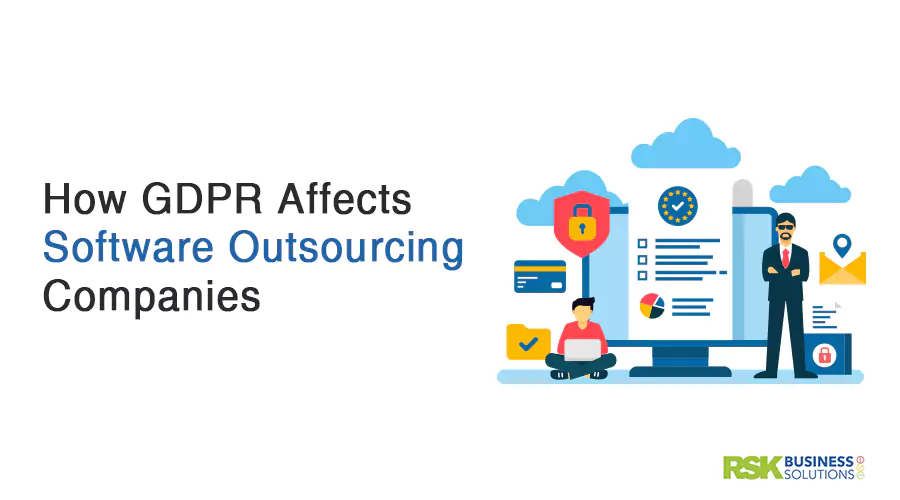
May 25th, 2018, made the GDPR a law and changed the internet forever. GDPR stands for General Data Protection Regulation, an initiative aspiring to protect the data and privacy of residents within the EU. It also addresses the export of personal data outside the EU.
Related Articles

IT Outsourcing
RSK BSL Tech Team
May 4, 2025
|
|

Mobile Application Development
RSK BSL Tech Team
April 30, 2025
|
|

Software Development
RSK BSL Tech Team
April 27, 2025
|
|

Hire resources
RSK BSL Tech Team
April 24, 2025
|
|

Software Development
Praveen Joshi
April 20, 2025
|
|

Artificial Intelligence
Praveen Joshi
April 17, 2025
|
|

Pen Testing
Praveen Joshi
April 15, 2025
|
|

AI Tech Solutions
RSK BSL Tech Team
April 14, 2025
|
|

Software Development
RSK BSL Tech Team
April 9, 2025
|
|

Pen Testing
RSK BSL Tech Team
April 7, 2025
|
|

Software Development
RSK BSL Tech Team
April 3, 2025
|
|

Cloud Application
RSK BSL Tech Team
March 31, 2025
|
|

Pen Testing
Praveen Joshi
March 27, 2025
|
|

Software Development
RSK BSL Tech Team
March 25, 2025
|
|

Software Development
RSK BSL Tech Team
March 20, 2025
|
|

Software Development
RSK BSL Tech Team
March 18, 2025
|
How GDPR Affects Software Outsourcing Companies
May 25th, 2018, made the GDPR a law and changed the internet forever. GDPR stands for General Data Protection Regulation, an initiative aspiring to protect the data and privacy of residents within the EU. It also addresses the export of personal data outside the EU.
This measure has been long-desired, as since 2013, almost ten billion data records have been lost or stolen. Users are rightfully concerned about their data and how it is – or isn’t – being protected.
So what does all this mean for software outsourcing companies?
Classifying software outsourcing companies under GDPR
In order to understand your responsibilities, it’s crucial to look at the two primary roles involving data collection.
The first category is the data controller, an organization that determines the reason for storing or processing user data. But if you are actually storing and processing the data, probably on behalf of someone else, you are the data processor.
A bespoke software development company falls into the latter category. The new regulation requires that all personal data be handled securely, and that appropriate user consent be in place. User consent can take the form of a radio button, much like the ones used for accepting website terms and conditions.
This means that software outsourcing companies need to ensure that they comply with the regulations by either mirroring processes provided by the data controller, or they need to develop internal processes in order to remain compliant as a processor.
It is crucial that a software development company in UK strives to maintain user privacy, but also their trust. How can such companies cost-effectively take on these new responsibilities? We have a few tips for you.
How software outsourcing companies can stay GDPR-friendly
There are five steps that we believe can help your company stay compliant with the new regulations.
- Identify what personal data will be handled by the outsourced provider.
Will the third part be handling names, addresses, phone numbers, or websites? Maybe they will have access to more critical information, such as social security numbers or the users credit card. Or perhaps it will be tamer, like the user’s interests in movies, books, or kitchen products. Whatever you are collecting, make sure to keep track of it. And make sure that the outsourced provider is able to securely handle this data.
- Identify who has access to this data under the outsourced provider.
If possible, find out who will have access to this data. Are they trustworthy? Ideally, you want the smallest number of people possible having access to user data.
- Identify the storage repository for this personal information.
How are they storing the data? Is the data stored on servers within the EU, in another region, or on the cloud? If you store data outside the EU, then users won’t be able to use your service unless they meet all of the GDPR international transfer conditions.
- Identify what security and organizational measures are and can be implemented.
Make sure that your own organization has security procedures in place in order to protect user data. Furthermore, consider lessening the amount of people who have access to the data internally.
- Review risk assessments of the outsourced provider after any data breach.
Whenever there is a data breach, immediately get a list of users affected and notify them. Make sure to follow up with how you will prevent such a breach in the future.
It’s all about the user
At the end of the day, user data landing in the wrong hands can change the course of their life – in a bad way. GDPR gives us a few more rules to follow, and a transparent method of protecting users. And when you protect your users, you gain their trust.
Praveen Joshi
Praveen is a seasoned IT Solutions Leader and Director at RSK Business Solutions, a technology-driven IT Consulting Company that specializes in Bespoke Software Development, Agile Consulting, Mobile App Development, Smart Sourcing, and much more. For the last 17 years, he has been delivering quality custom IT solutions that help businesses achieve their goals.

 Share
Share Post
Post Tweet
Tweet Copy
Copy


